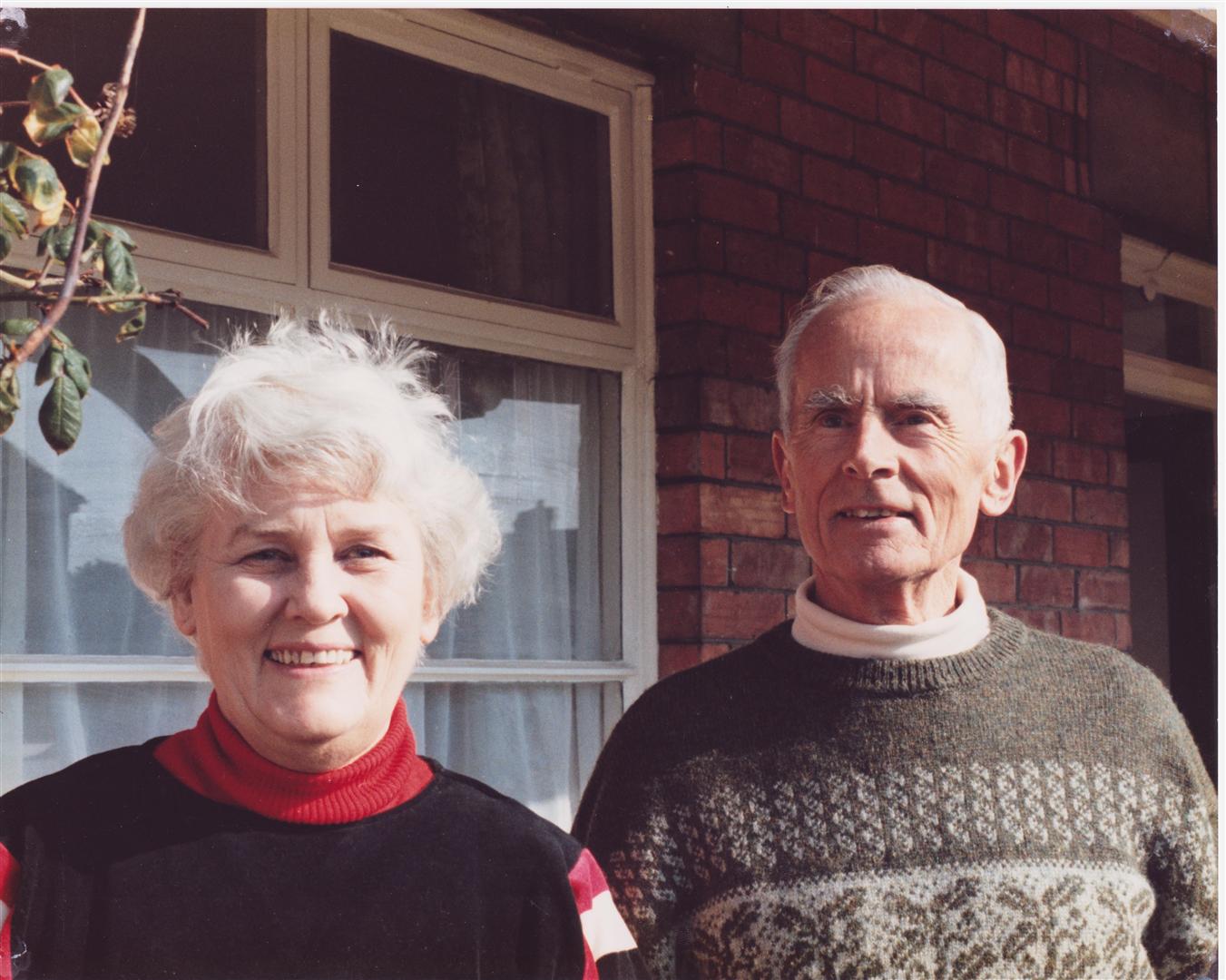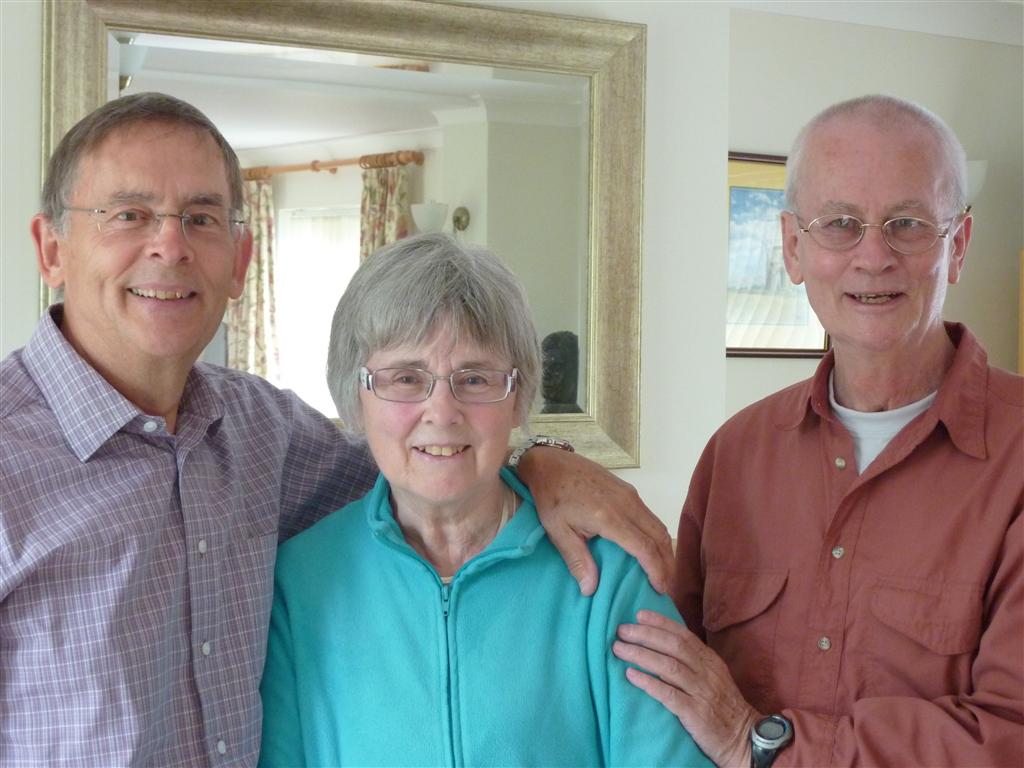Squadron Leader Nicholas Pollock, OBE RAF (Ret)
By Simon Pollock
|
|
Retur |
|
Nicholas Pollock was born 5th January 1918, the son of a famous sculptor and artist, Courtenay Pollock. He was brought up in Ealing leaving school at the age of 14. After a number of jobs he joined the Shorts aircraft company in 1939, working on their new Stirling bomber in Rochester. He left Shorts in 1940 to join the RAF, initially as an AC2, and started training as a Wireless Operator; the course I believe was at Blackpool and later at Yatesbury. Following further training as an Air Gunner he joined his first operational squadron, No 106, in September 1941 as a Pilot Officer. He married a month later.
|
|
Active Service.
Nicholas (also known as Nicky or Nico) Pollock’s flying log book shows that he joined 106 Sqn’s ‘B’ Flight, whose Flt Commander was Sqn Ldr Stenner. Initially his crew position was W/Op / AG on Hampdens; his first Operation on 10th October 1941 was against Essen. Following 7 further Hampden operations, including an attack in January 1942 on the Prinz Eugen in Brest harbour, he flew in the Manchester in anger for the first time in March 1942, a mining operation against Terschelling in Holland. It is not clear if Nicky crewed as both W/Op and AG on Manchesters, but 3 operations later, on the night of 23/24 April 1942, he was assigned the nose gunner position for an operation against Rostock by his pilot, P/O Harry Stoffer.
|
|
Last Mission.
On what was to be his last operation, Harry Stoffer wanted Nicholas in the nose gunner position to help with map reading over the target area. The port engine had been overheating on the way into the target and periodically emitted streams of sparks, coupled with a worrying high fuel consumption. Nicholas was aware of these developments via the intercom and also knew that Harry, the co-pilot Tim Prescott-Decie and the Navigator were certain they wouldn’t make it back to the UK. After the attack there was some discussion about diverting to Sweden, but Harry decided to attempt a return. Shortly afterwards as they approached the Danish coast the engine caught fire. Following the order five minutes later to abandon the aircraft Nicholas baled out, not knowing he was over Denmark! Back in the aircraft Tim, the co-pilot was trying to help Harry put on a parachute harness; apparently Harry had decided not to bother with one because the trip was 90% over water, and only wore a Mae West! But when Tim tried to change places with Harry to allow him to put a harness on the Manchester nearly went out of control, and Harry told Tim to get out. As he left he looked back at Harry, who smiled and waved him ‘out’. The whole crew successfully escaped except Harry.
The events after Nicholas landed in a field are recounted on page 111 of Paul Brickhill’s excellent book “Escape to Danger”. There is also a mention of their aircraft’s failing to return on page 179 of Guy Gibson’s book “Enemy Coast Ahead”. Suffice to say Nicholas spent over 3 years in Stalag Luft 3, returning home to Rochester in June 1945 to his wife Betty, and also to see his 3 years old daughter for the first time.
|
Service after WWII.
Now a Flt Lt, Nicholas elected to remain in the RAF. In 1948 he was posted to Singapore and Butterworth, accompanied by his family (including a new son). Returning home in 1950, now with a second son, Nicholas changed to the Secretarial Branch following a course at Bircham Newton. Promoted to Sqn Ldr, he served at Mildenhall before a momentous change to his life when he volunteered to learn to speak Arabic at the School of Arabic Studies in Lebanon. With this new skill he was posted with his family to Aden in 1952, and spent much of his time “up country” working with the Aden Levies and local Arab people. His job entailed directing RAF fighter bombers (Venoms and Hunters) against insurgent positions, a dangerous activity which resulted in his award of the OBE. He was also responsible for laying out and building rough desert landing strips, using local labour.
Returning home in 1955, Nicholas was posted to Buxton as the accounts officer (I recall him saying this was his worst posting!). Shortly afterwards whilst on leave he received a mysterious phone call instructing him to be packed and ready in 4 hours time (in the middle of the night) for a car which would collect him. He was given no other information. That night he was taken to Mildenhall and flown to Cyprus. For the next few weeks he flew in a Comet over the eastern Mediterranean listening (eavesdropping) to and recording arabic radio transmissions concerning the looming Suez crisis.
In 1958 Nicholas was posted to GCHQ Cheltenham on Intelligence duties, then to RAF Upwood in 1961, ending his service career at Records Office in Gloucester in 1965. For the next 6 years he was Burser to Kings School, Rochester.
In 1971 Nicholas was intrigued by an advertised job in Oman – his application was successful and he spent the next 6 years working in the Defence organisation of SOAF. Once again, his knowledge of Arabic was decisive. Whilst there, his hobby was flying radio controlled model aircraft, much to the interest of the locals. In 1978 on his departure he was personally presented with the Order of Oman by the Sultan.
|
Finally Retired.
Finally retired, Nicholas lived with his wife in Westbury, Wiltshire. He continued a very active life involving himself with DIY, golf, the piano, computer games and the real love of his life, painting. His beloved wife Betty sadly died in 1996. In 1999 he was tracked down by Jorgen Jorgenson, a Danish aviation historian, and was later invited, as guest of honour, to a reception in the local town Hall of the Lundtoft Kommune. Joined by his son he was able to visit the very site where his Manchester crashed, where they discovered cartridge cases and other bits of aircraft debris. He also visited the farmhouse he had come to that night 57 years ago, and also paid his respects at Harry Stoffer’s grave. A truly memorable event for this 2nd World War veteran!
Nicholas Pollock died in his 90th year on 5th August 2007 after a short illness. He was survived by his 3 children Cathy, Simon and Julian.
He had lived a full life. |
|

Betty and Nicholas Pollock 1991
|
|

Simon, Cathy and Julian 2011 |
|
Retur | |
|
|
|
|

